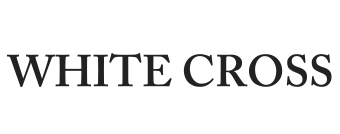日本語AIでPubMedを検索
Adapting Neurosurgery Practice During The Covid-19 Pandemic In The Indian Subcontinent
Adapting Neurosurgery Practice During The Covid-19 Pandemic In The Indian Subcontinent.
PMID: 32679362 DOI: 10.1016/j.wneu.2020.07.038.
抄録
背景:
COVID-19パンデミックは脳神経外科の診療を一変させた。かなりのリソースがこれに費やされました。インド亜大陸でのパンデミックは、世界の他の地域と比較すると、比較的遅れている。脳神経外科の診療は、ロックダウンのような大規模な破壊的な措置によって影響を受けないままでいることはできません。その緩やかな緩和を伴うコビド感染の必然的な上昇は、医療提供者にリスクを与え続けている。したがって、特に民間施設や公費病院における診療の変更、外科医への感情的な影響、外科医の精神に対するソーシャルメディアの影響などの観点から、パンデミックが医療提供者に明確な影響を与えているかどうかを評価することが不可欠である。
BACKGROUND: The COVID-19 pandemic has changed the practice of neurosurgery. Significant resources have been dedicated to it. The pandemic in the Indian subcontinent, when compared to the rest of the world, is relatively delayed. The neurosurgical practice cannot remain unaffected by hugely disruptive measures such as a lockdown. The inevitable rise in covid infections with its gradual relaxation continues to pose a risk for health care providers. Therefore, it is imperative to evaluate whether the pandemic has had a discernible effect on the same especially in terms of practice modifications in private establishments and publicly funded hospitals, the emotional impact on the surgeon, and the influence of social media on the psyche of the surgeon.
材料と方法:
外来診療や手術室での注意事項、ソーシャルメディアの影響、経済的損失、遠隔医療やウェビナーの影響など、COVIDの具体的なテーマに関連した質問を含むオンラインアンケート調査を作成した。調査へのリンクは、全国の公私立の脳神経外科医に郵送された。アンケートの質問に対する自由で偏りのない回答を保証するために、回答は匿名化されました。
MATERIAL AND METHODS: An online questionnaire-based survey was prepared, with questions related to the COVID specific themes of precautions taken in outpatient services and operation theaters, the influence of social media, the economic loss incurred, and the perceptible impact of telemedicine and webinars. The links to the survey were mailed to neurosurgeons in private and public practice all over the country. The responses were anonymized to ensure free and unbiased answers to the survey questions.
結果:
176 の回答の合計は、インド亜大陸のすべての上から受信しました。回答者の年齢中央値は 39 歳(範囲 32-70 年)とポストレジデンシーの経験は 7 年(範囲 0-34 年)でした。回答者は公立と民間の開業医が均等に混在していた。回答者の46%が制限付きの外来診療を行っており、公的機関での診療が多かった(p=0.22)が、遠隔外来診療の実施率も高かった(26%対17%)。外来診療では、サージカルマスク、N-95マスク、手袋の着用が最も一般的に行われていた(60%以上)。民間の開業医は選択的手術を継続している(40%)が、公的機関では緊急時のみ手術を行う(29%)など、より慎重な傾向が見られた。すべての開業医が最も恐れていたのは、家族への感染であった(75%)。ソーシャルメディアは質問のブレインストーミングや診療内容の変更に役立ったが、一部の外科医はソーシャルメディア上で脅迫を受けたことを認めていた(37.5%)。約30%の脳神経外科医にとって、うつ病と経済的損失は明白であった。
RESULTS: A total of 176 responses were received from all over the Indian Sub-Continent. The median age of respondents was 39years (range 32-70 yrs) and the post-residency experience was 7years (range 0-34 yrs). Respondents were an equitable mix of public and private practitioners. 46% of the respondents were practicing restricted outpatient services, more in public institutions (p=0.22) which also had a higher incidence of tele-outpatient services(26% vs 17%). Wearing surgical masks, N-95 masks, and gloves were the most commonly practised precautionary measures in outpatient services(>60%). While private practitioners were continuing elective cases(40%), public institutes were more cautious with only emergencies being operated(29%). The greatest fear among all practitioners was passing the infection to the family (75%). Social media was helpful for brainstorming queries and updating practice modifications, but some surgeons admitted to receiving threats upon social media platforms(37.5%). Depression and economic losses were palpable for approximately 30% neurosurgeons.
結論:
この調査では、パンデミックに対する脳神経外科医の認識と、公私の診療の違いが浮き彫りになった。選択的処置の中止、通常の外来診療の大幅な縮小、通常の外来診療の大幅な変更、PPEの使用による安全性の不備や民間診療所の財政的損失に関する不安などが、調査結果の中で目に見えるテーマとして挙げられています。遠隔医療は思ったほど普及していないが、オンライン教育は好意的に受け止められている。
CONCLUSION: The survey highlights the perception of the neurosurgeons towards the pandemic and the difference in public-private practice. Suspension of elective procedures, severe curtailment of the regular outpatient appointments, drastic modifications of the normal OPD/OR practices and apprehensions related to inadequacy of safety provided by PPE usage and financial losses of private establishments were some of the visible themes in our survey results. Though telemedicine has not been as widely adopted as expected, yet online education has been favourably received.
Copyright © 2020. Published by Elsevier Inc.


